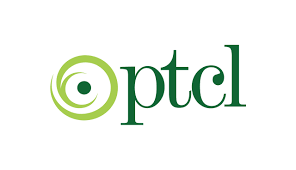Islamabad – Pakistan recently achieved a significant milestone in its ongoing digital transformation journey. The country’s largest mobile network operator (MNO), Geez (previously known as Mobilink), successfully completed the long-delayed transfer of ownership of its mobile tower assets to a dedicated tower company. This long-awaited step not only aligns with global best practices in telecom infrastructure management but also opens new avenues for improving connectivity, efficiency, and service quality across the country.
Transition to Independent Tower Companies: A Global Telecom Trend
In the traditional telecom model, mobile network operators built and managed their own mobile towers to support their services. These towers were exclusive and typically not shared with rival networks, leading to unnecessary duplication of infrastructure and increased operational costs. However, over the past two decades, the telecom industry has undergone a fundamental shift.
Recognizing the inefficiency and high costs of exclusive tower ownership, telecom markets across the world began transitioning to a more efficient model involving independent tower companies, often referred to as towercos. These entities own and operate tower infrastructure and lease access to multiple network operators, encouraging resource sharing, reducing environmental impact, and lowering the cost of operations.
Countries like India, China, Indonesia, and Malaysia have already adopted this model on a large scale. In India, for example, companies such as Indus Towers and Bharti Infratel (now merged) manage thousands of shared towers, helping reduce redundancy while ensuring seamless network expansion.
The Pakistani Context: Delays, Challenges, and Finally, a Breakthrough
Pakistan’s journey toward tower infrastructure sharing has been slow and challenging. Geez first attempted to offload its tower assets in 2017, but regulatory bottlenecks thwarted the process. A second attempt in 2022 also faced roadblocks, largely due to unresolved legal and policy complications.
The breakthrough finally came in December 2024, when Geez announced the successful sale of its 10,500 towers to Engro Connect, a subsidiary of the diversified industrial giant Engro Corporation, for a sum of $563 million. This landmark transaction represents the first large-scale tower transfer of its kind in Pakistan and is poised to set a precedent for other operators in the country.
This development has been widely applauded by industry stakeholders and is seen as a significant enabler of Pakistan’s broader digital goals.
Why Tower Sharing Matters for Pakistan’s Digital Future
The benefits of transferring tower ownership to dedicated companies are numerous and far-reaching:
1. Enhanced Network Quality and Coverage
With shared access to existing towers, telecom companies can expand their coverage without investing in duplicative infrastructure. This is especially beneficial in rural and underserved regions of Pakistan, where building new towers is often cost-prohibitive.
2. Operational Efficiency
Independent towercos specialize in infrastructure management. By outsourcing this aspect, mobile network operators can focus more on core business activities like customer service and innovation.
3. Reduced Capital Expenditure
Selling tower assets frees up capital for telecom operators. These funds can then be reinvested in new technologies, such as 5G deployment, cloud computing, or expanding fiber-optic networks.
4. Environmental and Urban Benefits
Fewer towers mean less energy consumption, reduced visual pollution, and more sustainable urban planning — all aligning with global climate change and ESG (Environmental, Social, and Governance) goals.
The Emerging Role of Engro Connect
With the acquisition of Geez’s tower assets, Engro Connect has emerged as a new and critical player in Pakistan’s digital infrastructure landscape. Engro Corporation, known for its extensive footprint in energy, petrochemicals, and agribusiness, is now venturing into digital connectivity.
Engro Connect’s entry is seen as part of a broader push by Pakistani conglomerates to invest in next-generation infrastructure and digital services. The company is expected to focus not only on operating the towers efficiently but also on upgrading them with green energy solutions, improved security systems, and next-generation capabilities compatible with upcoming 5G and IoT technologies.
Fiber Optic Expansion: The Next Big Hurdle
While the successful transfer of tower ownership is a positive step forward, Pakistan still faces considerable challenges in expanding its fiber-optic infrastructure, which forms the backbone of high-speed digital connectivity.
Fiber penetration in Pakistan remains critically low compared to regional peers. According to the Pakistan Telecommunication Authority (PTA), only around 10% of mobile base stations are currently connected to fiber networks. In contrast, countries like China and India have achieved over 70% fiber backhaul connectivity.
Building a nationwide fiber network is capital-intensive, logistically challenging, and hindered by outdated right-of-way policies, inconsistent municipal regulations, and resistance from local authorities.
Policymakers Must Step In: Time for Regulatory Overhaul
Pakistan’s digital economy cannot thrive without strong and clear policy direction. The recent tower deal was delayed multiple times due to unclear or inconsistent regulations. Without immediate policy reforms, future infrastructure investments could face similar obstacles.
Policymakers need to prioritize:
1. Streamlined Regulatory Approvals
Simplifying the approval processes for infrastructure transfers, licensing, and spectrum management will encourage foreign and domestic investment.
2. Incentives for Infrastructure Sharing
Offering tax breaks, subsidies, or fast-track approvals to operators who engage in tower or fiber sharing could accelerate rollout efforts.
3. Fiber-Friendly Urban Policies
Municipal governments must cooperate with telecom operators by offering easier right-of-way access, reducing bureaucratic red tape, and supporting underground fiber deployment in cities.
4. Public-Private Partnerships (PPPs)
Collaborations between the government and private sector players like Engro Connect can help build shared infrastructure in remote areas where commercial viability is low.
The Digital Dividend: Why It Matters
Investing in digital infrastructure isn’t just a technical issue — it’s a socio-economic imperative. A well-connected digital economy facilitates:
- E-commerce growth
- Online education and e-health services
- Remote work opportunities
- Financial inclusion through mobile banking and fintech
- Efficient governance and smart cities initiatives
According to the World Bank, increasing broadband penetration by just 10% can boost GDP growth in developing countries by up to 1.4%. For Pakistan, with a young and increasingly digital-savvy population, the benefits could be even greater.
Conclusion: A Turning Point, but Not the Destination
The successful transfer of 10,500 mobile towers to Engro Connect is a landmark achievement for Pakistan’s telecom sector. It sets the stage for a more efficient, competitive, and inclusive digital future. However, this should not be seen as the end goal.
To fully realize the vision of a Digital Pakistan, there must be a coordinated national strategy focusing on infrastructure sharing, regulatory modernization, and fiber-optic expansion. The government, private sector, and civil society must work hand-in-hand to eliminate policy bottlenecks and foster a robust digital ecosystem.
As Pakistan navigates this pivotal moment, bold action by policymakers will determine whether this transformation remains a promising start — or becomes a sustainable revolution.

























